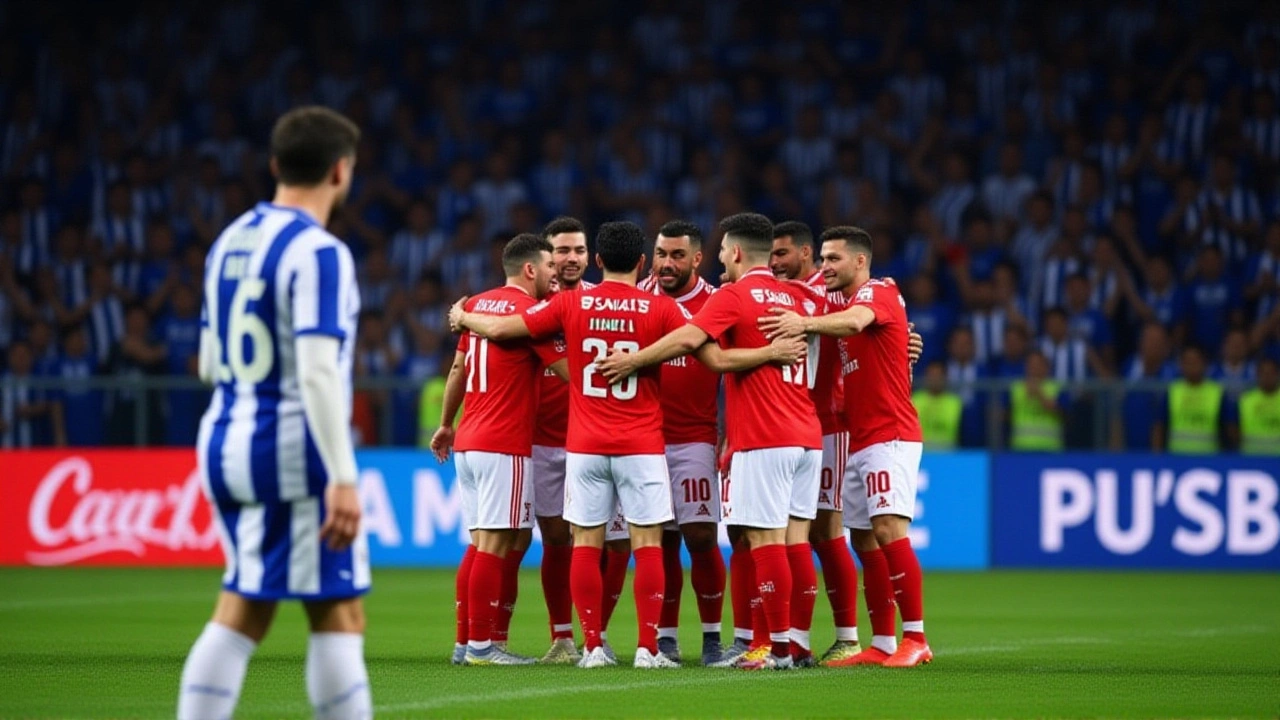When Sport Lisboa e Benfica learned it had clinched a place in the 2025 FIFA Club World CupUnited States, the Portuguese giants felt the weight of history. The qualification came not from a Champions League trophy but from being the seventh‑best ranked eligible UEFA side in the four‑year club coefficient table covering 2021‑2024. The decision, sealed by the FIFA Council on 14 February 2023, handed Portugal its debut at the tournament’s top tier alongside long‑time powerhouse FC Porto.
How Benfica Earned Its Spot
The revamped Club World Cup expanded from seven to 32 teams, allotting twelve slots to UEFA based on an objective ranking system. Benfica’s steady run – a domestic league title in 2022‑23, two deep Europa League runs and a handful of Champions League group‑stage appearances – vaulted them to the coveted seventh position. As FIFA’s competition secretary Marta Martín explained, “the four‑year coefficient rewards consistency, not just single‑season fireworks, which is why Benfica, despite no Champions League final, deserved a berth.”
That ranking also meant the club would be drawn into Group C, sharing the stage with New Zealand’s Auckland City FC, German giants FC Bayern Munich, and Argentine giants Club Atlético Boca Juniors.
Group C Showdown
Benfica kicked off the group on 16 June with a 2‑2 stalemate against Boca Juniors. The match, officiated by Mexican referee César Ramos, drew a crowd of 55,574 in an undisclosed venue. A late equaliser from Boca’s forward left the Portuguese side with a point but a crucial away‑goal advantage.
Four days later, the Lisbon side unleashed a 6‑0 demolition of Auckland City at a modest 6,730‑spectator stadium. Qatari referee Salman Falahi saw every one‑touch finish, and the win vaulted Benfica to the top of the table on goal difference.
The climactic group finale on 24 June pitted Benfica against Bayern Munich. A 13th‑minute strike from Norwegian forward Antonio Schjelderup settled the match 1‑0. Though Bayern’s earlier 10‑0 thrashing of Auckland City and a 2‑1 win over Boca gave them a superior goal‑difference (+10 vs +7), head‑to‑head rules sent the Portuguese club through as group winners.
Bayern’s campaign, while impressive, ended second. Their loss to Benfica proved decisive, underscoring the fine margins in a format where a single goal can outweigh a five‑goal swing.
Key Moments and Performances
- Benfica’s 6‑0 victory marked the largest winning margin in Group C.
- Antonio Schjelderup’s decisive goal arrived just 13 minutes into the match, earning him “Man of the Match” honors.
- Bayern’s 10‑0 rout of Auckland City set a new tournament record for the biggest win.
- Attendance varied dramatically: from 6,730 for the Auckland match to 55,574 for the Boca tie.
- Refereeing came from four continents – North America, Asia, Europe, and Africa – highlighting FIFA’s global officiating pool.
Reactions from Clubs and Experts
Post‑match, Benfica coach Rui Vaz praised his squad: “We knew the ranking gave us a ticket, but the group stage proved we belong here. Beating Bayern is a statement.”
Bayern’s sporting director Marina Kocic was gracious: “A loss is a loss, but the quality of the competition pushes us to improve. Congratulations to Benfica for a well‑earned win.”
Football analyst Javier Sanchez noted, “The UEFA ranking pathway is vindicated. It gives clubs like Benfica a realistic route to the world stage without needing a Champions League final.”

What This Means for Portuguese Football
Portugal now has two representatives – Benfica and FC Porto – in the world’s premier club tournament. That dual presence could boost the domestic league’s marketability, attract higher‑profile sponsors, and inspire youth academies nationwide. As former Portugal captain Luis Figo put it, “Seeing our clubs compete globally lifts the entire nation’s football profile.”
Moreover, the success may prompt the Portuguese Football Federation to lobby for more UEFA ranking points, ensuring future slots for clubs that consistently perform in Europe.
Looking Ahead to the Knockout Phase
Benfica’s next challenge is slated for 28 June at Lincoln Financial Field in Philadelphia. They will face the runner‑up of another group, a match that could pit them against a South American giant or an Asian champion, depending on the draw.
Should Benfica advance past the quarters, they would join the likes of Real Madrid and Liverpool in the semi‑finals, potentially reshaping perceptions of Portuguese club football on a global scale.
Key Facts
- Benfica qualified as the 7th‑best UEFA team in the 2021‑2024 ranking.
- Group C opponents: Auckland City FC, FC Bayern Munich, Club Atlético Boca Juniors.
- Group record: 7 points (2 wins, 1 draw), goal difference +7.
- Antonio Schjelderup scored the decisive goal vs. Bayern on 24 June.
- Next match: 28 June, 5:00 PM, Lincoln Financial Field, Philadelphia.
Frequently Asked Questions
How does Benfica’s qualification affect Portuguese clubs in Europe?
Benfica’s entry demonstrates that consistent European performances can earn a Club World Cup slot without a Champions League win. It encourages other Portuguese sides to prioritize steady UEFA coefficient gains, potentially leading to more clubs in future editions.
What criteria did FIFA use to allocate UEFA’s twelve spots?
FIFA adopted a four‑year club ranking, rewarding points earned in Champions League and Europa League matches. The top twelve eligible UEFA clubs – excluding those already qualified as Champions League winners – earned places in the 32‑team tournament.
Who were the standout players in Group C?
Antonio Schjelderup’s winning goal against Bayern earned him player‑of‑the‑match honors. For Bayern, striker Thomas Müller (who scored a brace in the 10‑0 win) stood out, while Boca’s midfielder Juan Garrido was pivotal in the group‑stage draws.
When and where is Benfica’s next match?
The knockout‑stage game is scheduled for 28 June 2025, 5:00 PM local time, at Lincoln Financial Field in Philadelphia, USA. The opponent will be determined by the draw of other Group winners and runners‑up.
What does this tournament format mean for future Club World Cups?
Expanding to 32 teams and using a multi‑year ranking system makes the competition more inclusive and merit‑based. It gives clubs from traditionally lower‑ranked leagues a clearer path while rewarding European consistency, likely reshaping qualification strategies across continents.
